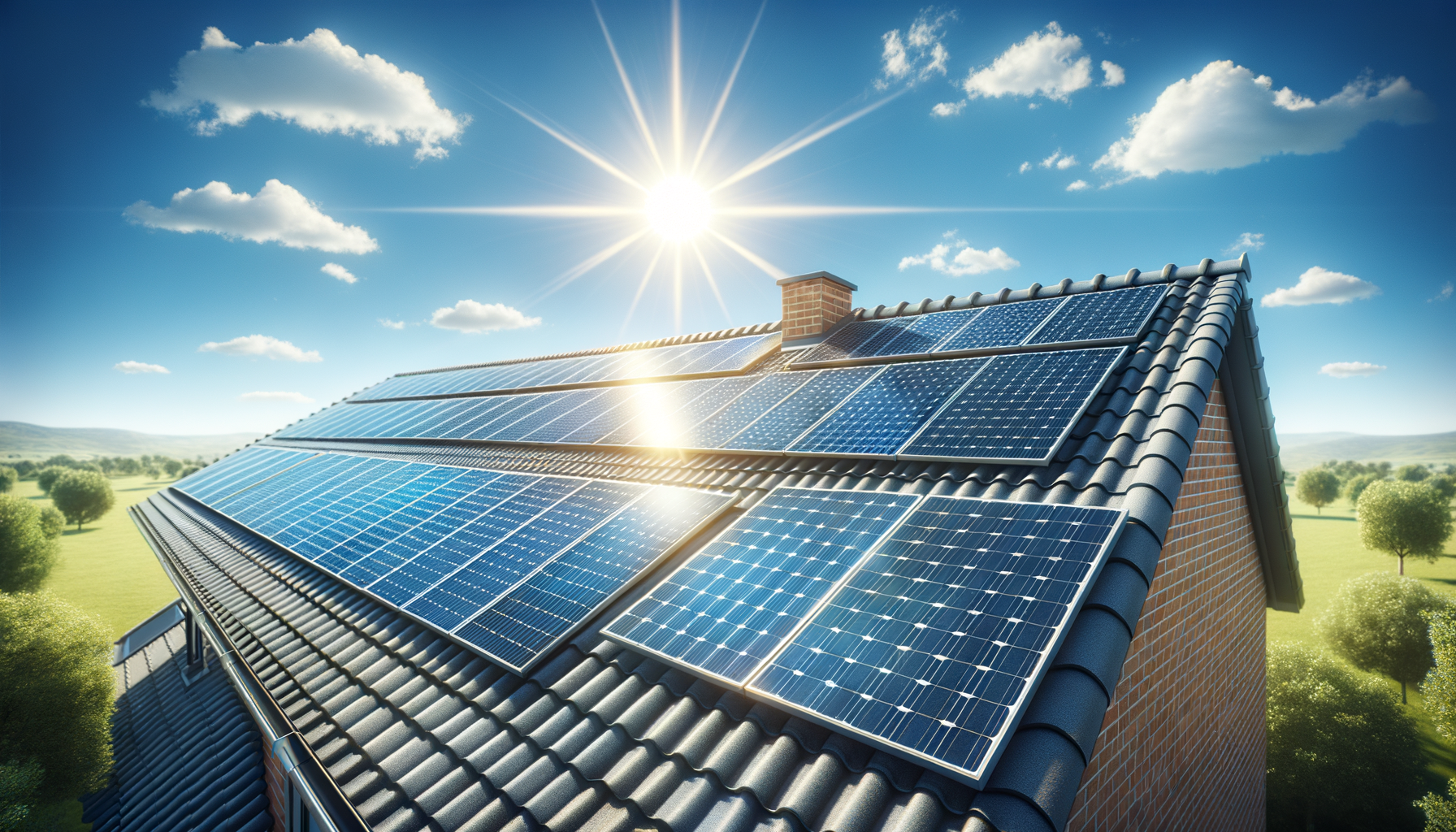Introduction to Solar Panels
Solar panels have become a prominent feature in the landscape of renewable energy, offering a sustainable and environmentally friendly option for generating electricity. As the world increasingly turns towards green energy solutions, understanding the various aspects of solar panels is crucial for homeowners and businesses alike. This article delves into the workings, benefits, and considerations of installing solar panels in residential settings.
How Solar Panels Work
Solar panels, or photovoltaic (PV) panels, convert sunlight into electricity through the photovoltaic effect. This process involves semiconductor materials, typically silicon, which absorb photons from sunlight, knocking electrons loose and allowing them to flow, thus generating an electric current. This direct current (DC) is then converted into alternating current (AC) using an inverter, making it suitable for home use.
The efficiency of solar panels depends on several factors, including the material used, the angle and orientation of installation, and local weather conditions. Modern advancements have led to the development of panels with higher efficiency rates, making solar energy a viable option even in less sunny regions.
Benefits of Installing Solar Panels
Installing solar panels offers numerous advantages, both environmentally and economically. Key benefits include:
- Reduction in Energy Bills: By generating your own electricity, you can significantly reduce or even eliminate your monthly energy costs.
- Environmental Impact: Solar energy is a clean, renewable resource that reduces your carbon footprint and helps combat climate change.
- Energy Independence: With solar panels, you become less reliant on the grid, providing a measure of security against energy price fluctuations and outages.
Additionally, many governments offer incentives such as tax credits and rebates to encourage solar panel installation, further enhancing the financial benefits.
Considerations Before Installing Solar Panels
Before making the decision to install solar panels, several considerations need to be addressed:
- Initial Costs: While the long-term savings are substantial, the initial investment can be significant. It’s important to assess your budget and financing options.
- Roof Suitability: The condition, size, and orientation of your roof can affect the efficiency and feasibility of solar panel installation.
- Local Regulations: Zoning laws and homeowner association rules can impact your ability to install solar panels, so it’s essential to check local regulations.
Consulting with a professional installer can help navigate these considerations and ensure a successful solar panel installation.
The Future of Solar Energy
The future of solar energy looks promising, with continuous advancements in technology and increasing global awareness of environmental issues. Innovations such as solar tiles and improved battery storage solutions are making solar energy more accessible and efficient. As more countries commit to reducing carbon emissions, the adoption of solar panels is expected to rise, contributing to a more sustainable future.
Furthermore, community solar projects and government initiatives are expanding the reach of solar energy, allowing even those without suitable roofs to benefit from this renewable resource.
Conclusion
Solar panels represent a significant step towards a sustainable future, offering both environmental and financial benefits. As technology continues to evolve, solar energy will likely play an increasingly vital role in our energy landscape. For homeowners considering this green investment, understanding the workings, benefits, and considerations of solar panels is essential to making an informed decision. With the right approach, harnessing the power of the sun can lead to a brighter, cleaner future.




Leave a Reply